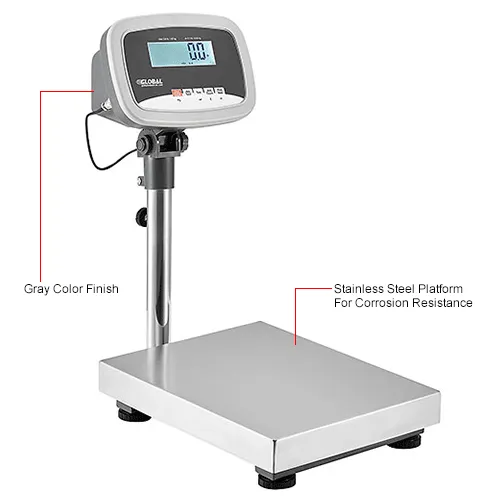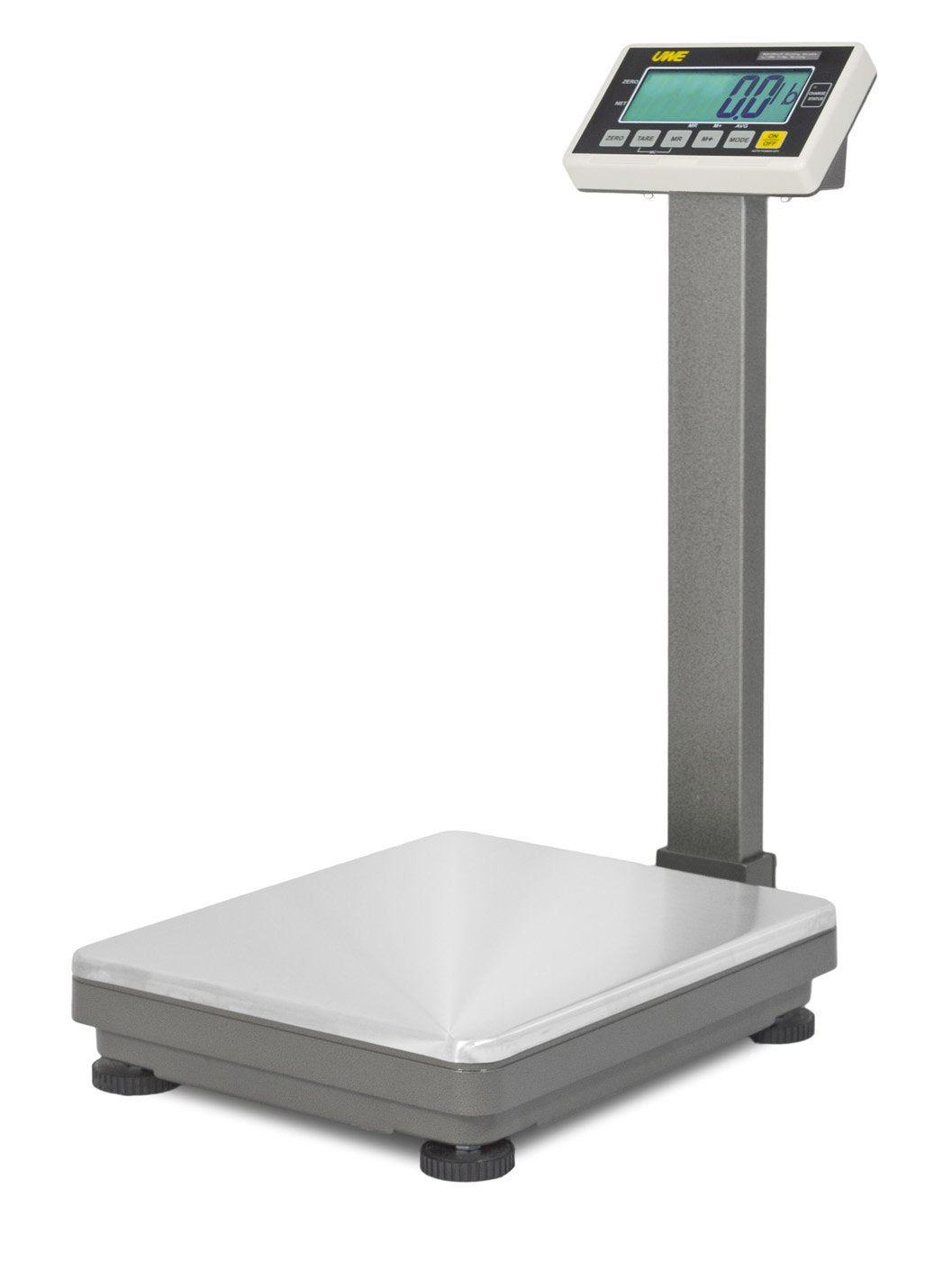
Top Attributes to Seek in High-Quality Industrial Scales
In the realm of industrial procedures, selecting the right scale is crucial for guaranteeing performance and precision. Trick functions such as accuracy and precision, together with toughness and develop high quality, play a substantial role in determining the suitability of a scale for particular applications. Additionally, factors to consider like load capacity, ease of use, and connectivity options additionally improve operational performance. Recognizing these components is necessary for making a notified decision, yet many organizations ignore crucial facets that could impact their efficiency. A closer evaluation of these features exposes insights that can transform industrial evaluating techniques.
Precision and Accuracy
Making sure the accuracy and precision of commercial scales is extremely important for efficient operations across various industries. Accurate dimensions are essential in markets such as manufacturing, logistics, and food handling, where even small disparities can result in considerable economic losses, endangered item quality, or regulative non-compliance. Top quality industrial ranges are designed to provide trustworthy efficiency, making use of innovative technology to guarantee accurate weight analyses.
The calibration process is necessary in preserving the precision of these ranges. Regular calibration versus certified referral weights makes sure that any drift in dimension is corrected, thus maintaining conformity with market requirements. Furthermore, the use of high-resolution load cells improves the range's capability to find minute weight changes, even more enhancing its accuracy.

Resilience and Develop Quality
Durability and construct quality are crucial aspects that determine the long life and reliability of commercial ranges in requiring environments. Industrial ranges are frequently subjected to harsh problems, including exposure to dirt, wetness, and heavy loads. The materials used in their building play an important duty in ensuring they can endure these obstacles.
Premium commercial ranges commonly feature robust housings made from materials such as stainless steel or light weight aluminum, which not just provide architectural honesty yet also withstand corrosion and wear. In addition, focus to detail in the style, such as strengthened edges and shock-absorbent feet, can enhance durability and shield delicate components from damage.
In addition, high-grade components, including load cells and digital components, contribute to the general develop top quality. These parts ought to be designed to tolerate temperature variations and vibrations typically located in industrial settings. Ensuring correct access security (IP score) is also crucial, as it indicates the scale's ability to hold up against dust and fluid exposure.
Ultimately, choosing industrial ranges with superior resilience and develop quality will lead to an extra reputable, long-lasting solution that satisfies the extensive needs of numerous commercial applications.
Tons Ability and Variety
When selecting industrial ranges, comprehending their load ability and array is important for conference specific functional needs. Load capability refers to the maximum weight that a scale can accurately determine, while the range shows the range of weights the scale can handle properly. It is crucial to choose a range that not just satisfies existing requirements however also suits prospective future demands.
Various sectors have unique weight dimension needs. For instance, a manufacturing facility may need ranges efficient in evaluating heavy machinery elements, while a lab might only need scales for lighter products. Choosing a range with a suitable load capacity makes sure accuracy and precision, protecting against straining that can bring about equipment damages or incorrect analyses.
Furthermore, it is necessary to think about the incremental see level of sensitivity of the range within its range. A range that can measure both light and hefty weights properly can improve operational performance, enabling flexible applications. Purchasing ranges with suitable lots ability and array considerably adds to efficiency, compliance with have a peek at this website industry requirements, and overall functional dependability. Therefore, extensive analysis of these specifications is important before purchase.
Simplicity of Usage and Upkeep

In enhancement to user-friendliness, convenience of upkeep is an additional essential element to take into consideration. Scales that are made with accessible elements facilitate regular upkeep jobs such as cleaning, calibration, and battery replacement. A modular design can further improve these procedures, permitting quick repair work and minimal downtime.
In addition, the materials made use of in the building of commercial ranges play a substantial duty in upkeep. Ranges made from resilient, corrosion-resistant materials are easier to tidy and much less vulnerable to damage, which expands their life-span and minimizes overall operational prices.
Regular upkeep schedules, guided by the manufacturer's referrals, are vital for ensuring ideal efficiency. By prioritizing ease of usage and maintenance, companies can make certain that their industrial scales remain reliable, trusted, and reliable devices in their operations. This causes improved productivity and an extra effective process.
Connectivity and Combination Choices
Integrating industrial ranges into existing functional structures is greatly boosted by durable connectivity alternatives. Premium commercial scales must supply several connection techniques, consisting of USB, Ethernet, and cordless options such as Wi-Fi or Bluetooth. These attributes facilitate smooth information transfer to central databases, ERP systems, or cloud systems, making it possible for real-time tracking and coverage.
Moreover, progressed assimilation options permit compatibility with existing equipment, such as printers or barcode scanners, streamlining processes and enhancing workflow efficiency. Scales that sustain industry-standard procedures, such as Modbus or RS-232, can quickly communicate useful content with different tools and systems, ensuring a cohesive functional atmosphere.
Another vital facet is the capacity to integrate with software program remedies that examine and picture data - Industrial Scales. Ranges geared up with APIs or software advancement packages (SDKs) give businesses the versatility to customize capabilities tailored to their specific demands
Lastly, considering future scalability is critical; choosing scales that can adapt to developing technical developments guarantees lasting value and lessens the need for costly substitutes. In summary, assessing connectivity and combination options is crucial when selecting premium industrial scales that will certainly enhance operational efficiency and information administration.
Conclusion
In final thought, selecting high-quality industrial scales necessitates cautious factor to consider of a number of crucial attributes. Industrial Scales. Prioritizing these characteristics eventually leads to boosted efficiency and long-lasting worth in commercial applications, reinforcing the value of informed decision-making in range option.
In the world of commercial procedures, selecting the right range is vital for guaranteeing performance and accuracy.Ensuring the precision and precision of industrial scales is extremely important for reliable procedures across various industries. Lots capacity refers to the optimum weight that a range can properly determine, while the range indicates the spectrum of weights the range can manage properly. A production center might need ranges capable of evaluating heavy machinery parts, while a lab might just need ranges for lighter products. By prioritizing ease of use and maintenance, organizations can ensure that their commercial scales stay reliable, dependable, and effective tools in their operations.